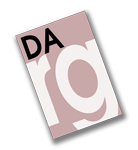Las relaciones entre inteligencia artificial, regulación y ética, con especial atención al sector público. (RI §425484)

The relationships between artificial intelligence, regulation and ethics, with special atention to the public sector -
Juli Ponce Solé
Aunque se diseñe y aplique con la mejor de las intenciones, junto a las ventajas para la buena administración, se han identificado ya los riesgos potenciales de la Inteligencia Artificial (IA) en múltiples ámbitos, derivados de la existencia de errores de programación, la opacidad, la vulneración de la protección de datos los sesgos o la manipulación, por ejemplo.
Existen muchos códigos éticos de la IA, procedentes de diferentes segmentos de la sociedad mundial y de diversas disciplinas, que tratan de evitar y/o remediar estos riesgos de la IA. Algunos académicos y profesionales sostienen que un enfoque ético voluntario es apropiado para esta tecnología tan rápida y beneficiosa, y que debe evitarse la regulación legal porque podría sofocar la innovación y reducir los numerosos beneficios de la IA. En países como los Estados Unidos de América, se suele preferir la autorregulación voluntaria, a veces dirigida por códigos éticos, en los ámbitos tecnológicos emergentes.
Por otro lado, la Unión Europea ha publicado una "Propuesta de Reglamento sobre Inteligencia Artificial" que fue estimulada en parte por una resolución del Parlamento Europeo sobre la IA ética que pedía una regulación jurídica de ésta. Ambos enfoques ponen de relieve en la práctica la tensión existente entre los partidarios de un control de la IA sólo a través de la ética y los que creen necesaria la intervención del Derecho.
El presente artículo se ocupa de una cuestión todavía poco tratada, la relación entre ética y Derecho en relación con la IA. El trabajo se ocupa del concepto de IA ética y de su garantía mediante códigos éticos, de la relación de la ética con el Derecho en este campo, del contenido de este respecto a la IA, con especial atención al uso de la misma por el sector público, y de los distintos enfoques sobre esta cuestión, que exige, sin duda, una aproximación transdisciplinar.
I. INTRODUCCIÓN. ASPECTOS POSITIVOS Y RIESGOS POTENCIALES DE LA INTELIGENCIA ARTIFICIAL II. INTELIGENCIA ARTIFICIAL, DERECHO, ÉTICA. III. DERECHO, DERECHOS FUNDAMENTALES E IA EN LA UNIÓN EUROPEA. IV. EL CONTENIDO DEL DERECHO DE LA IA Y LOS TIPOS DE REGULACIÓN JURÍDICA POSIBLES. V. DERECHO IMPRESCINDIBLE, ÉTICA NECESARIA. VI. DERECHO, COMPARACIÓN Y COLABORACIÓN: EL EJEMPLO DE LA UE Y LOS EE. UU. VII. DERECHO, ÉTICA Y TRANSDISCIPLINARIEDAD. VIII. CONCLUSIONES. IX. BIBLIOGRAFÍA.
Although designed and implemented with the best of intentions, along with the advantages for good governance, the potential risks of Artificial Intelligence (AI) have already been identified in multiple areas, stemming from the existence of programming errors, opacity, data protection breaches, biases or manipulation, for example.
There are many AI codes of ethics, coming from different segments of the global society and from various disciplines, that seek to avoid and/or remedy these AI risks. Some academics and practitioners argue that a voluntary ethical approach is appropriate for this fast-paced and beneficial technology, and that legal regulation should be avoided because it could stifle innovation and reduce the many benefits of AI. In countries such as the United States of America, voluntary self-regulation, sometimes led by ethical codes, is often preferred in emerging technology fields.
On the other hand, the European Union has published a "Proposal for a Regulation on Artificial Intelligence" that was stimulated in part by a European Parliament resolution on ethical AI that called for legal regulation of AI. Both approaches highlight in practice the tension between those in favor of AI control only through ethics and those who believe that legal intervention is necessary.
This article deals with an issue that is still little addressed, the relationship between ethics and law in relation to AI. The paper deals with the concept of ethical AI and its guarantee through ethical codes, the relationship between ethics and law in this field, the content of the latter with respect to AI, with particular attention to the use of AI by the public sector, and the different approaches to this issue, which undoubtedly requires a transdisciplinary approach.
